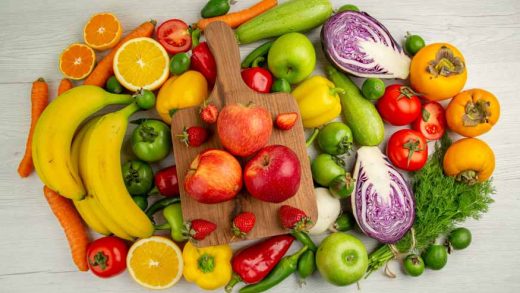Let me tell you a story about a little Lily who hates cooking. She once asked her grandmother why she always forces her to learn cooking. With a smile, her grandmother began to tell her a story about a girl who never learned to cook and always relied on others. One day, she found herself all alone with a full pantry and rumbling tummy but was unable to feed herself. That day, she learned that cooking is an essential life skill that empowers you to take charge of your well-being, and everyone must learn it.
In a world buzzing with queries about the questions of existence, science serves as a domain where young minds flourish. Science quizzes for kids act as a catalyst for curiosity and an invitation to explore the thrill of discovery. Beyond seeking correct answers, these quizzes aim to ignite a passion for uncovering the secrets of the world around us. The science quiz questions add an element of enjoyment to learning.
Why do we need Science Quizzes?
Quizzes initiate the curiosity to learn with the thrill of a game. They encourage the kids to:
- Think precisely and make connections.
- Retain more knowledge as they learn while having fun.
- Maintain a competitive spirit that boosts confidence and motivates to learn more.
- Enjoy the satisfaction of exploring “why” while getting the answers right.
For Young Explorers: Grades I to III
- What part of the plant makes food?
- Root
- Stem
- Leaf
- Flower
Answer: C. Leaf
- Which planet is known as the Red Planet?
- Earth
- Mars
- Jupiter
- Venus
Answer: B. Mars
- What do you use to see things far away in the sky?
- Microscope
- Binoculars
- Telescope
- Magnifying glass
Answer: C. Telescope
- Which animal breathes through its skin?
- Fish
- Frog
- Elephant
- Bird
Answer: B. Frog
- What is the boiling point of water?
- 50°C
- 100°C
- 75°C
- 25°C
Answer: B. 100°C
- What do bees collect from flowers?
- Leaves
- Stems
- Nectar
- Bark
Answer: C. Nectar
- Which of these is NOT a primary color?
- Red
- Green
- Blue
- Yellow
Answer: B. Green
- How many legs does a spider have?
- 6
- 8
- 10
- 4
Answer: B. 8
- What is the largest mammal in the world?
- Elephant
- Giraffe
- Blue Whale
- Rhinoceros
Answer: C. Blue Whale
- Which of these is a gas giant planet in our solar system?
- Mars
- Venus
- Jupiter
- Mercury
Answer: C. Jupiter
For Budding Explorers: Grades IV to VII (h2)
As we move to the higher level, the general science quiz questions become more challenging. Are you prepared for the test?
- What is the process by which plants release water vapor into the air?
- Condensation
- Transpiration
- Evaporation
- Precipitation
Answer: B. Transpiration
- Who is known as the father of Physics?
- Albert Einstein
- Isaac Newton
- Nikola Tesla
- Galileo Galilei
Answer: B. Isaac Newton
- What kind of energy does the Sun provide?
- Mechanical
- Solar
- Electrical
- Chemical
Answer: B. Solar
- What is the human body’s largest organ?
- Heart
- Skin
- Liver
- Kidney
Answer: B. Skin
- What is the center of an atom called?
- Electron
- Neutron
- Proton
- Nucleus
Answer: D. Nucleus
- Which force keeps the planets in orbit around the Sun?
- Gravity
- Magnetism
- Friction
- Air resistance
Answer: A. Gravity
- What is the freezing point of water?
- 0°C
- 32°C
- 100°C
- -273°C
Answer: A. 0°C
- What gas do living creatures need to breathe?
- Carbon Dioxide
- Nitrogen
- Oxygen
- Hydrogen
Answer: C. Oxygen
- Which of these is a renewable resource?
- Coal
- Natural Gas
- Oil
- Solar Energy
Answer: D. Solar Energy
- What is the term for animals that eat only plants?
- Carnivores
- Herbivores
- Omnivores
- Insectivores
Answer: B. Herbivores
Advanced Topics for the Curious Minds
- What is the force that pulls objects toward each other called?
- A) Magnetism
- B) Friction
- C) Gravity
- D) Electricity
Answer: C) Gravity
- Which planet in our solar system has the strongest gravitational pull?
- A) Mars
- B) Jupiter
- C) Earth
- D) Venus
Answer: B) Jupiter
- What would happen to your weight if you went to the moon?
- A) It would increase
- B) It would decrease
- C) It would stay the same
- D) You would become weightless
Answer: B) It would decrease
- What do plants need to perform photosynthesis?
- A) Carbon dioxide and water
- B) Oxygen and sunlight
- C) Nitrogen and water
- D) Sunlight and oxygen
Answer: A) Carbon dioxide and water
- During photosynthesis, what do plants release into the air?
- A) Carbon dioxide
- B) Oxygen
- C) Nitrogen
- D) Hydrogen
Answer: B) Oxygen
- Which part of the plant captures light for photosynthesis?
- A) The stem
- B) The roots
- C) The flowers
- D) The leaves
Answer: D) The leaves
- What is the main pigment found in the green leaves of plants that absorbs light?
- A) Xanthophyll
- B) Carotene
- C) Chlorophyll
- D) Anthocyanin
Answer: C) Chlorophyll
Developing a Love of Discovery in Children
The mission is to transform learning into an adventure that goes beyond the classroom. With each science quiz question and answer, we aim to instill a passion for discovery and innovation. Encourage kids or students to dive into these questions, seek out answers, and, most importantly, keep asking more.
This compilation of science questions and answers provides a chance for kids to retain the concepts of science in a fun and interactive way. By testing their knowledge with these questions, children can enhance their grasp of the world and refine their critical thinking abilities to nurture curiosity about the workings of the world.
For those with curiosity and testing their understanding, Kangaroo Kids International Preschools presents a plethora of resources to satisfy your hunger for knowledge. The science quiz questions and answers go beyond assessing knowledge; they serve as your path to excel in science. They inspire exploration and ignite curiosity. So why wait? Immerse yourself in the assortment of quizzes and enjoy this journey!
Are you prepared to test your understanding and venture into the captivating domain of science? Engage in the quiz now. Let the voyage of discovery commence!









